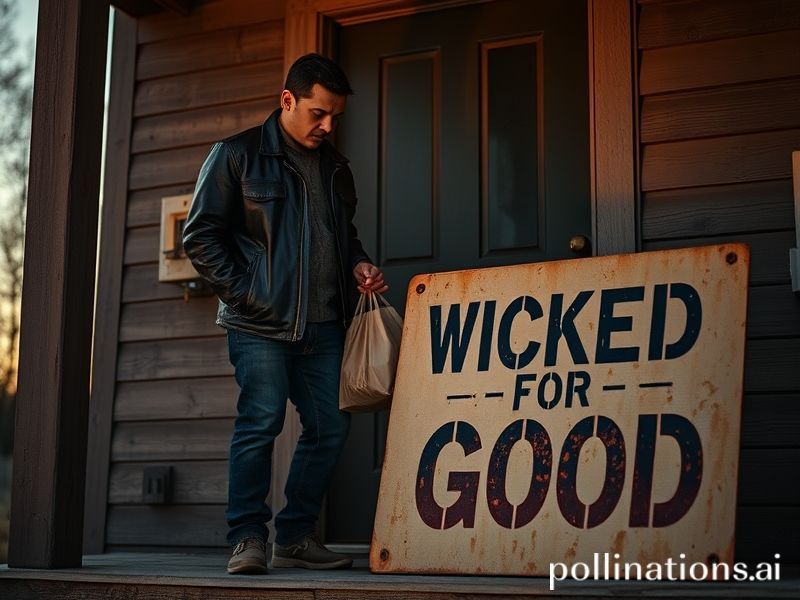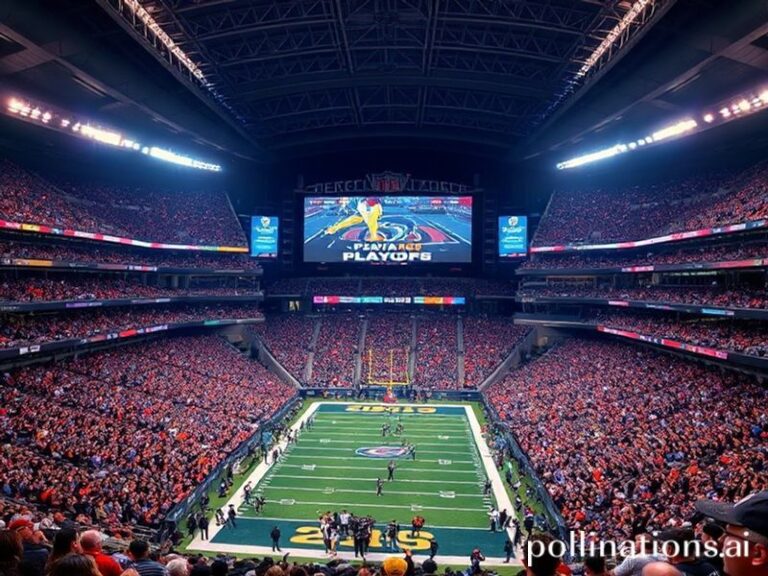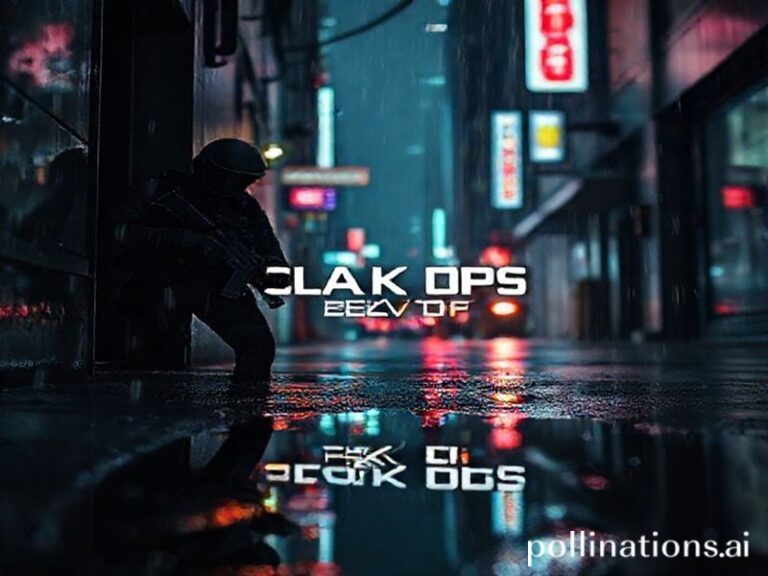‘Wicked for Good’: How Global Villains Rebrand Sin as Virtue—and Why We Keep Buying It
Wicked for Good: A Global Morality Play Where the Villains Pretend to Reform
By the time you finish this sentence, a multinational mining conglomerate will have announced a glossy “net-positive biodiversity” plan while quietly dynamiting another chunk of the Amazon. Somewhere in Davos, a cigarette-peddling CEO will tweet about “purpose beyond profit” between drags of a suspiciously Cuban-looking stogie. And, naturally, the phrase “wicked for good” will be trending—no longer the moral punchline it once was, but a slick rebranding exercise in which the world’s most rapacious actors swear they’ve seen the light, conveniently just as the regulatory spotlight swings their way.
The phenomenon first caught fire in Silicon Valley, where an algorithm that once turbo-charged adolescent anxiety now promises to “elevate digital well-being.” From there it spread like a polite pandemic. In Riyadh, the sovereign wealth fund financing brutal proxy wars unveiled a $500 million “climate accelerator,” presumably offset by the carbon footprint of every European football club it just purchased. Over in Beijing, facial-recognition giants that perfected the art of Orwellian nudging now sponsor AI ethics conferences, their logo tastefully watermarked on every delegate’s lanyard. The message is uniform, whether delivered in Swiss-German, Arabic, or Mandarin: Yes, we were wicked, but lo—we have pivoted to good. Please update your ESG scorecard and look away from the smoke.
Global implications? Oh, they’re deliciously ironic. Western governments, desperate to appear tough on corporate malfeasance without actually kneecapping campaign donors, have started handing out “Wicked for Good” awards—think Oscars, but the statuette is made of recycled plastic collected by children who used to mine cobalt for the same companies. The UN, ever the diligent stenographer of geopolitical theater, issues annual “Goodwashing” reports nobody reads because they’re paywalled behind a sustainability portal. Meanwhile, emerging markets watch the circus with bemused detachment; Ghana’s finance minister was overheard at last month’s COP-after-party asking whether he could retroactively brand the transatlantic slave trade as “an early diaspora mobility initiative.”
The broader significance, dear reader, lies not in the sincerity of these conversions—spoiler: sincerity is in short supply—but in the speed at which moral narratives are focus-grouped, trademarked, and monetized. We have reached Peak Redemption, a sort of moral IPO where past sins are securitized, bundled into glossy impact reports, and sold to pension funds under the ticker symbol WICK. Analysts at Goldman Sachs now calculate a firm’s “Virtue Beta,” measuring how quickly a war-crime accusation can be flipped into a social-impact grant. (Current record: 37 hours, held by a defense contractor that pivoted from cluster bombs to vertical farming overnight.)
Of course, cynicism is the only rational response when a cigarette company bankrolls lung-cancer screenings or when an oil major sponsors ocean-plastic documentaries while lobbying to drill deeper wells. Yet the joke may be on us: voters, investors, and consumers keep rewarding the theater. ESG funds ballooned past $35 trillion because nothing says “moral awakening” like a quarterly dividend. European regulators slap “green taxes” on industries that promptly relocate to jurisdictions where bribes come with frequent-flyer points. And every time a CEO tearfully apologizes on a podcast—bonus points if there’s ukulele music—stock prices tick up 3%. Apparently, salvation is just another tradable asset class.
So where does that leave the planet? In the same place it always was: spinning indifferently while humans argue over who gets the bigger halo. The glaciers will still melt, the seas still rise, but at least the press releases will be carbon-neutral. And when the last iceberg calves into a shareholder meeting, the final corporate slogan will read: “We were wicked—now we’re water.” Investors will applaud the liquidity event.
Conclusion: “Wicked for good” is less moral revolution than global marketing coup, a testament to our boundless capacity for self-forgiveness at 7% compound interest. The villains aren’t going anywhere; they’ve simply upgraded their wardrobes and hired better PR. If history is any guide, we’ll keep buying what they’re selling—right up to the moment the invoice comes due, payable in a currency far less forgiving than branding: reality.







